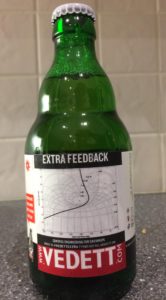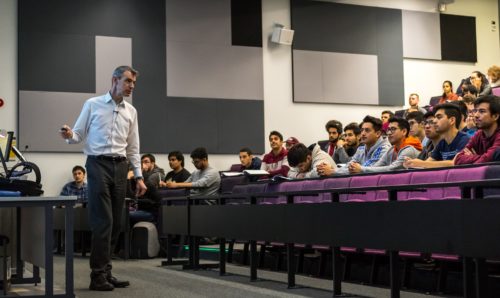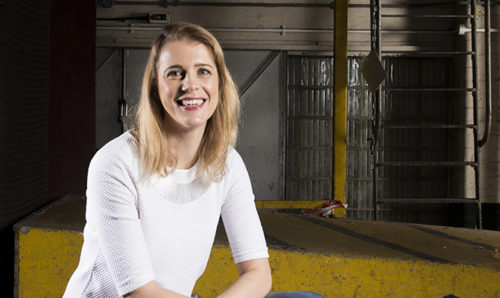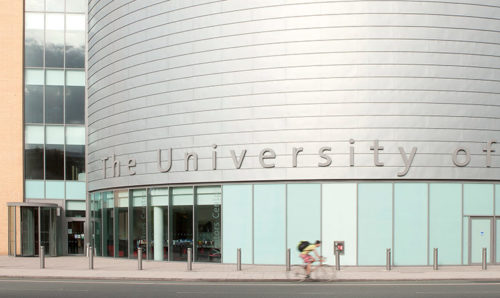Meet a EEE Tutor – Prof William Heath
Meet the Department 1st May 2018
Prof William Heath is the Director of Teaching and Learning and also teaches on the third year Numerical Analysis unit which is an optional unit in all three undergraduate courses in our School.
Please can you describe your research, for the layman, in ten sentences or less?
I am a control engineer so my area is the analysis, design and implementation of feedback control systems. That is to say I make things work. For example, one application I work on is the control of nanopositioners: these are ultra precise stages used to mount and move samples in experimental microscopy. The control task is to achieve high precision on-the-fly in the face of some challenging device physics. In particular the devices themselves are highly resonant and are driven by piezoelectric actuators whose response includes hysteresis. In fact a focus of my work is working on systems with such actuator nonlinearities. All this is underpinned by some elegant mathematical theory.
Queensgate nanopositioning stage
How can your research benefit the public?
Control engineering is essential for modern manufacturing. One aspect of my work that I really enjoy is the wide range of applications. I have worked on engine management, water distribution, water treatment, food production, paper making, steel making, plastic film extrusion and nuclear decommissioning.
But I also believe in knowledge for its own sake. It’s all about impact these days, but a university’s biggest impact is in transforming young people’s lives. I enjoy introducing students to the ideas and philosophy of control engineering. One aspect that we don’t articulate well is that we study open rather than closed systems: we don’t consider dynamic systems in isolation, but rather how they respond to possibly unknown external factors. This is quite different to traditional physics where, for example, the motion of the planets is viewed as a beautiful but self-contained system. The control engineer’s viewpoint seems more-and-more appropriate for grand challenges such as climate change where we need to understand the possible consequences of our own actions.
At a conference in Osaka
How did you first become interested in your research area?
It depends how narrowly you define my field. I was at Newcastle University in Australia for six years where I worked with some brilliant control engineers. But I sensed a growing anomaly in their approach. On the one hand I was introduced to some beautiful classical ideas (for the specialist: dissipativity, integral quadratic constraints and the input-output approach to stability). On the other, they were excited about the potential of a technique called model predictive control (which I had already implemented back in the UK) which is used in more and more applications. No one seemed to see a connection, and I’ve been working on marrying the two since my return to Manchester in 2004.
Who or what first inspired your interest in Science and Engineering?
I studied mathematics as an undergraduate and wanted to apply it to something useful. I enrolled on an MSc in Systems and Control at UMIST (it obviously wasn’t considered Advanced in those days) not knowing quite what to expect, and loved every minute. What began as a utilitarian venture quickly became a passion.
I was surprised at the time by the diversity of analytic tools needed for goal-oriented tasks such as control system design. Mastering such tools is fun! But mostly I still find it thrilling when simple mathematics can explain some rich structure in the physical world. As an example, I was once given a tour of a paper mill by the parent company’s Director of R&D. He pointed to the swirling pulp on the forming wire, and said something along the lines of “Just imagine the curl on that! This process is highly nonlinear and almost surely chaotic. You’ll need neural networks if you’re going to crack it.” Yet it turned out the phenomenon we were discussing could be explained (and controlled) using only simple linear algebra.
Can you tell us a little about your other interests?
Every Director of Teaching and Learning will tell you how busy they are. Combine that with research, teaching and family and there’s not much left for other interests. It would be easier to list the things I’ve put aside, such as playing in an Australian brass band or standing on the terraces at Turf Moor. Still, occasionally I manage to mix a little bit of business and pleasure.
Mixing business with pleasure
What do you get up to in your spare time?
Actually I do find time to get out on a bicycle. We live on the edge of the Peak District, and when it’s not raining the hills are inspiring. Most weekends, whatever the weather, I try at least to get up and down Long Hill – I’m not very fast, but I did once overtake Mark Cavendish at the top (that he was off his bike taking a leak is surely insignificant detail).
Mark Cavendish was overtaken here
How does being based here in Manchester help your work and research?
Manchester has always been a focus for my discipline. The “British School” was originally the “Manchester School” after Howard Rosenbrock and Alistair MacFarlane founded the Control Systems Centre at UMIST in the 60s. I was lucky enough to be supervised by Peter Wellstead for my PhD. He is less well known, but hugely loved and respected by those who worked with him. The preface to a recent book describes Peter as “one of the best control engineers and professors I ever met”.
Now I am surrounded by talented staff and students, both within the discipline and in other areas. There are huge opportunities to work with colleagues from other Schools, and my current collaborations include with MIB (Manchester Institute of Biotechnology), MACE (School of Mechanical, Aerospace and Civil Engineering) and CEAS (School of Chemical Engineering and Analytical Science).









Leave a Reply